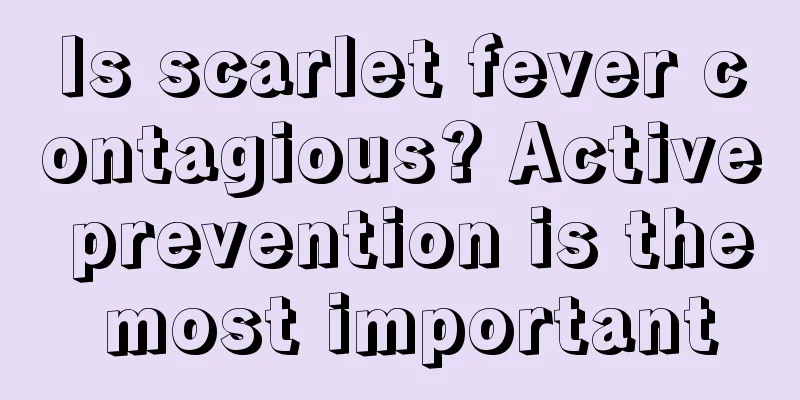What is the cause of neonatal jaundice and transfusion?

|
Neonatal jaundice is very common in newborns. Most babies will have jaundice of varying degrees after birth. This is because the baby's abnormal bilirubin metabolism causes increased bilirubin levels in the blood, resulting in jaundice of the skin, mucous membranes and sclera. Severe jaundice can cause the baby to lose appetite and affect the development of brain nerves. So, what is transfusion for neonatal jaundice? Everything is normal after the baby is born, but after 3-5 days, the baby's face starts to turn yellow and tends to become more and more yellow. This is physiological jaundice of the newborn. This is because the fetus relies on the mother for nutrition in the womb, and the waste produced after growth and development and metabolism is excreted with the help of the mother's organs. After the aging red blood cells in the fetus "die", the bilirubin produced is converted and excreted with the help of the mother's liver. So the baby was born without jaundice. After the baby is born, it is separated from the mother and all its metabolic products are handled by itself. The bilirubin produced after the destruction of red blood cells must be converted by the liver before it can be excreted from the body. At this time, the newborn's liver's ability to process bilirubin is very weak. Bilirubin cannot be excreted from the body through normal channels, and excess indirect bilirubin that has not been processed by the liver accumulates in the body. When it reaches a certain extent, the child will show jaundice. As the baby's liver function gradually matures, neonatal jaundice will gradually subside. Generally, jaundice will disappear within one week to half a month. So parents don't need to panic and can just ignore it. What is transfusion for neonatal jaundice? Transfusion for neonatal jaundice is for severe cases, which are rare. The purpose of transfusion is to replace sensitized red blood cells and antibodies in the blood to prevent further hemolysis; reduce serum unconjugated bilirubin concentration to prevent bilirubin encephalopathy; correct anemia and prevent heart failure. The indications for exchange transfusion are: ① The neonatal hemolytic disease has been confirmed before birth, with anemia, edema, hepatosplenomegaly and heart failure at birth, and cord blood hemoglobin < 120g/l. ② Umbilical cord blood bilirubin > 59.84~68.4μmol/l (3.5~4mg/dl), or 102.6μmol/l (6mg/dl) 6 hours after birth, and 205.2μmol/l (13mg/dl) 12 hours after birth; ③ Those whose bilirubin has reached 307.8~342μmol/l (18~20mg/dl) after birth, and 273.6μmol/l (16mg/dl) in premature infants; ④ Those who have early symptoms of bilirubin encephalopathy. The blood exchange operation is complicated and prone to complications such as infection, blood volume changes and electrolyte imbalance, so it must be performed with caution. Within 2 months after birth, severe hemolysis often leads to severe anemia. The red blood cells and hemoglobin should be checked again. If the hemoglobin is < 70g/l, a small amount of blood transfusion can be given. What is transfusion for neonatal jaundice? Although most babies will have varying degrees of jaundice after birth, transfusion for neonatal jaundice is only needed when the jaundice is severe, which is generally rare. Therefore, expectant fathers and mothers do not need to worry or be nervous too much. During the baby's jaundice period, they should pay attention to the baby's stool color and jaundice changes. |
<<: Is it okay for children to lose their teeth late?
>>: What are the baby's development indicators in one week and four months?
Recommend
What is the cause of the thick yellow tongue coating in children?
Children's health is very important and very ...
How do adolescent children grow taller?
Many adolescent children fail to reach the height...
Will children with lead poisoning always hit their heads?
We all know that when children first learn to wri...
Three month old baby has white spots on face
If a three-month-old baby has white spots on his ...
How many times a day is normal for a baby to poop?
Every part of the baby's body deserves our at...
How to reduce fever in children at night
It is not uncommon for children to have a fever a...
How to treat children's hand shaking when writing
Writing is something every student has to do ever...
What to do if a newborn aspirates meconium
Meconium aspiration syndrome refers to a syndrome...
How to improve children's allergic constitution?
I believe that every spring, there will be long q...
What are the dangers of hunchback in teenagers?
Teenagers have heavy study tasks and spend most o...
What should I do if my child hits his forehead?
Children are very naughty. It is inevitable that ...
Why does the child cry suddenly at night?
If a child suddenly starts crying loudly at night...
How long can a baby's belly button be wet?
The baby's belly button is a very critical pa...
What to do if your two-month-old baby has eczema on his face
Eczema is a condition that many babies have encou...
What to do if your newborn baby has cold hands and feet?
Many families have found that their children have...









